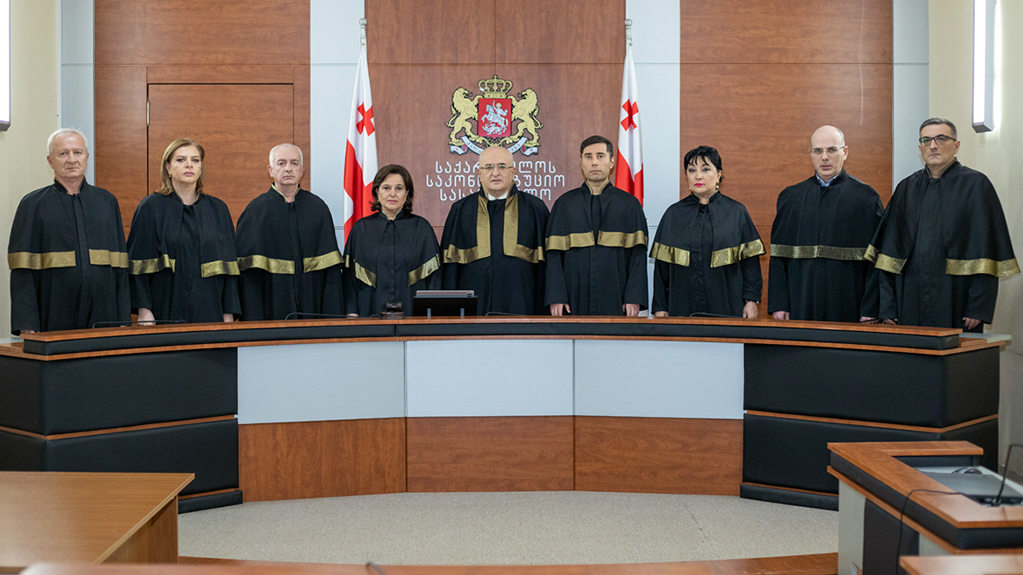The Constitutional Court has accepted the lawsuit filed by the President of Georgia, Salome Zourabichvili, requesting the suspension of the so-called Foreign Agents law until a decision is made on the case.
News
The President points out that the disputed law effectively stigmatizes media and non-governmental organizations by labeling them as Foreign Forces and Agents of a Foreign Country.
“The purpose of the law is to "ensure transparency of foreign influence." The only criterion proposed by the law for identifying Foreign Influence and thereby granting the status of "organization carrying the interests of a foreign power" is quantitative: receiving more than 20% of total non-commercial income during a calendar year from a Foreign Power. This criterion alone does not allow for the determination of any type of influence or for drawing appropriate conclusions. The Venice Commission rightly emphasizes that any foreign funding does not logically imply that the recipient is under Foreign Influence and is not sufficient to justify restrictive measures against civil organizations and mass media, especially when such funding is provided by international organizations of which Georgia is a member or wishes to join.
The approach, which suggests that providing material assistance solely serves the interests of the funder and receiving it a priori means pursuing those interests, contradicts the general humane idea of selfless goodwill and cooperation,” The lawsuit reads.
The President believes that the obligation to register in the register and submit a financial declaration, which represents an intervention in the freedom of association - particularly as it interferes with the freedom of activity of associations - ultimately has a significant impact on the full realization of this basic right.
The lawsuit cites a ruling by the European Court of Human Rights, which states that freedom of association includes not only the ability to form an association but also the “ability of that association to function, meaning it must be able to continue its activities without unjustified state interference.”
"Under such rules, obtaining financing for non-governmental organizations, whose main financial resources are foreign sources, becomes practically impossible. In the absence of financing, carrying out their activities will be nearly impossible.
The state monitoring established by the law represents an intensity of intervention that leads to interference in the daily activities of the organization and its disruption. Moreover, the high sanctions envisaged by the legislation will impose a heavy material and financial burden, significantly affecting the functioning of these organizations," the lawsuit states.
The lawsuit also notes that the Russian Law involves processing personal data without the individual's consent in the registration of the subject as an organization carrying out the interests of a foreign power, submission of financial declarations, and monitoring of these organizations. The law also includes a fine of 5000 GEL for non-submission of requested information, which interferes with the basic right to privacy of personal life and personal information. According to the lawsuit, the Russian Law essentially contradicts European privacy standards as well.
The President believes that the implementation of the disputed law will cause irreparable damage to Georgia's integration into the European Union, potentially resulting in the state losing the real possibility of integrating into the European Union and NATO.
"Suspension of the law will halt the harmful continuous process impeding European integration. This will provide a new impetus for the renewal of Georgia's European integration process," the lawsuit reads.
Furthermore, the President emphasizes the importance of ensuring the uninterrupted activities of civil society and media organizations during the election period, as guaranteed by the constitution.
In a 69-page lawsuit, the President claims that the Russian Law and its specific provisions contradict six articles of the Constitution: Article 78 (Integration into European and Euro-Atlantic structures), Article 22 (Freedom of association), Article 15 (Rights to inviolability of personal and family life, personal space, and communication), Article 17 (Rights to freedom of opinion, information, mass media, and the Internet), Article 12 (Right to free development of a person), and Clause 2 of Article 31, Clause 9 ("The law, if it does not reduce or cancel responsibility, does not have retroactive effect").















